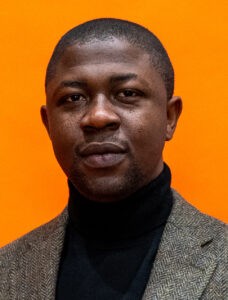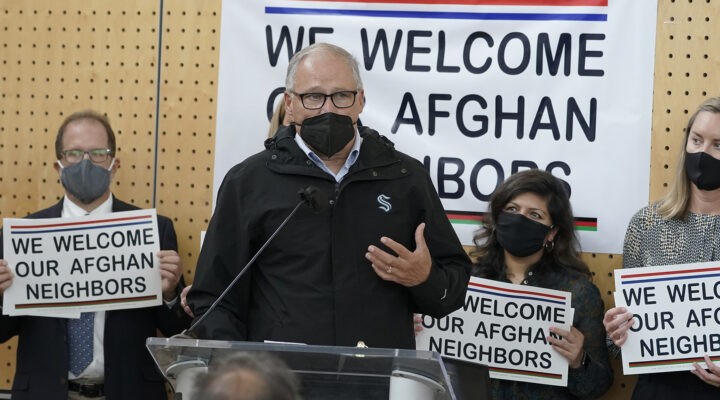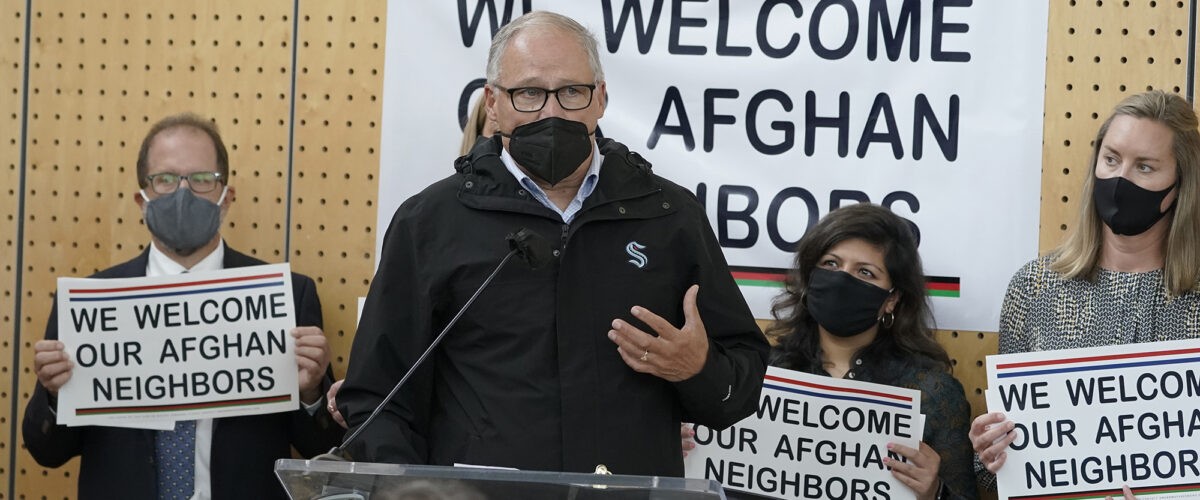Being a refugee is not just what happened to you. It’s also who you’ve become as a result of what happened to you.
Seventy years ago, the United States was one of the signatories to a historic legal document, the 1951 Refugee Convention. At the time, it was considered revolutionary that we ought to grant people fleeing persecution a pathway to safety.
In 2016, I fled persecution from Nigeria to the United States because of a law passed in my home country that criminalized same-sex relations. Unknown to me at the time was that the opportunity to flee persecution does not equal freedom. On the other side, I had to rebuild my life in a new country.

Edafe Okporo
I left my country with no money, no family in the United States, not knowing if my degree would be applicable. I left with just a glimmer of hope that the U.S. is a country of welcome and I would find a new home when I get to U.S. soil.
I was lucky to access the United States asylum system after my release from the detention center. I had to depend on the kindness of strangers. Someone gave me a blow-up mattress in her living room, a volunteer donated my first winter jacket, and someone helped me prepare for a job interview.
My very first job was working as a street vendor for a charity office in New York that helps collect donations from people walking on the street. I did it for a day and knew this would not be sustainable or healthy for me. I was young and vibrant but had no job security, no health insurance if I fell sick, and no way to build a life in a new country as I had hoped when I fled my country.
Those minor steps, one after the other, led me to my first job. Getting my foot in the door professionally as a refugee was like climbing Mount Everest. Because I already was on U.S. soil, I was able to network face-to-face. I had the opportunity to network with professionals who helped me in preparing my resume, mentorship and mock interviews that led to me securing a job.
Imagine how hard or impossible it would be to secure a job without the support of an army of volunteers who understand the U.S. labor market, the community members who donated a suit for me to wear and nice shoes.
Every year, thousands of people flee their countries, refugees looking for a sense of safety with limited options to rebuild their lives. Most refugees find themselves waiting years to find a suitable new home, a country that will accept them. People get stuck in informal work, and many refugees are forced to embark on dangerous journeys in search of a new home.
With the evacuation of Afghans from Kabul and the recent global refugee crisis from Ukraine, we need a coalition of people now more than ever who are ready to support their new neighbors as they seek to rebuild their lives.
“We need a coalition of people now more than ever who are ready to support their new neighbors as they seek to rebuild their lives.”
We have a historic opportunity ahead of us to make America a place of welcome. To fulfill our vision, Refuge America has created a website to help guide Americans who want to help displaced people. Visit there and volunteer to help displaced people who arrive in America achieve sustainability.
Tomorrow for anyone can be like that of the people we are trying to protect today. We can make a difference; we need your contribution of time and resources to achieve our goal of changing the landscape for refugees moving to America.
I hope you will join us to make our vision of America a reality. How do we educate a country so large, more than 300 million people, on the resources and talents of the refugee community? The answer still fathoms me up to this day: “one community at a time.”
Now is our time.
Edafe Okporo is the author of ASYLUM, A Memoir and Manifesto. He is a global gay rights activist and founder of The Pont. As U.S. mobilization director for Talent Beyond Boundaries, he is one of the country’s most visible voices on the issue of displacement and directs programs to win labor mobility pathways for refugees nationwide. A graduate of Enugu State University and the school of Business at NYU, he currently lives in New York City. Follow him on Twitter @ edafeokporo or at www.edafeokporo.com.
Related articles:
I came to America the right way and still was imprisoned for more than five months
Black and Asian refugees fleeing Ukraine face additional barriers, discrimination
Broad support for helping Afghan refugees does not uniformly extend to all refugees


